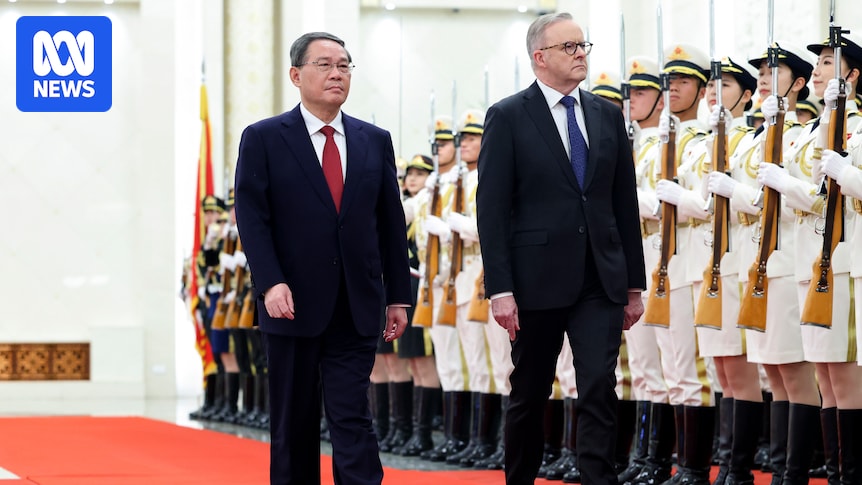
China’s Premier Li Qiang has called on Australia to resist protectionism, advocating for closer economic ties during meetings with Prime Minister Anthony Albanese and Australian business leaders in Beijing. This appeal comes at a time of global economic uncertainty, as both nations navigate complex international landscapes.
The meetings, which took place on Tuesday evening, included an annual leaders’ summit and a roundtable with influential Chinese and Australian business figures. The discussions emphasized the importance of maintaining open markets and predictable trade relations, a subtle critique of the previous U.S. administration’s disruptive trade policies.
In a joint statement, Australia and China committed to enhancing their bilateral relationship, focusing on areas of mutual interest while managing their differences. This development follows Mr. Albanese’s meeting with Chinese President Xi Jinping, who also underscored the need for cooperation, irrespective of global shifts.
Historical Context and Current Dynamics
The backdrop to these discussions is significant. The prime minister’s visit to the Great Wall of China on Wednesday echoes the historic trips of former Australian leaders Gough Whitlam and Malcolm Fraser in the 1970s, symbolizing a renewed focus on Sino-Australian relations.
Historically, China has been a major disruptor in the Asia-Pacific region. However, recent U.S. policies have introduced new complexities, potentially forcing Australia to navigate a delicate balance between its two largest trading partners. This geopolitical tension adds layers to the current economic dialogue between Australia and China.
Economic Agreements and Future Prospects
During the meetings, six agreements were signed to bolster economic cooperation across various sectors, including tourism, agriculture, and renewable energy. These agreements are seen as a step towards strengthening business ties and enhancing economic collaboration.
Premier Li’s remarks highlighted China’s ambition to position itself as a proponent of free trade, capitalizing on global discontent with the previous U.S. administration’s trade strategies. He urged business leaders to embrace openness and cooperation, emphasizing the mutual benefits of such an approach.
“We hope that you will embrace openness and cooperation, no matter how the world changes,” Premier Li told the business leaders. “You should be promoters of economic and trade cooperation, so that our two countries will better draw each other’s strengths and grow together.”
Challenges and Opportunities
Despite the positive tone, challenges remain. The issue of the Port of Darwin, which Mr. Albanese has pledged to address, looms large. Although Premier Li did not mention it directly, he expressed trust that Australia would treat Chinese enterprises fairly, hinting at ongoing concerns about market access.
As Mr. Albanese concludes his high-level meetings in China, his visit to the Great Wall is expected to underscore Labor’s historical role in fostering Australia’s relationship with China. The prime minister will then travel to Chengdu, further engaging with China’s dynamic economic landscape.
Looking Ahead
The meetings between Australian and Chinese leaders signify a potential shift towards more stable and cooperative economic relations. However, the broader geopolitical context, including tensions with the United States, continues to pose challenges.
As both nations navigate these complexities, the emphasis on dialogue and cooperation may pave the way for a more resilient and mutually beneficial partnership. The outcomes of these discussions could have lasting implications for regional stability and economic growth.







